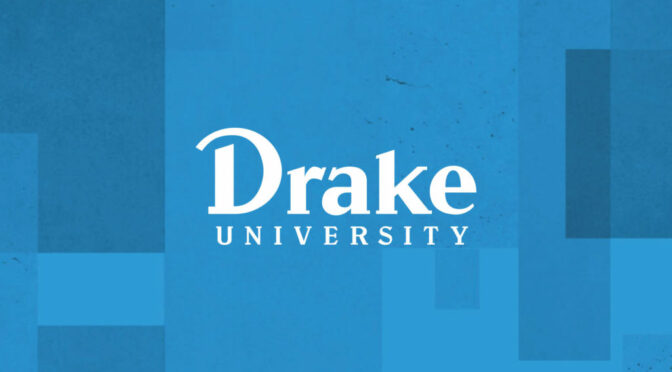Each Tuesday in OnCampus the Deputy Provost shares two articles with a read time of 10 minutes.
Call for Applications: Director of the Center for Teaching Excellence
Full time Drake faculty (continuous term, tenured, and tenure-track) are invited to apply to be the next Director of the Center for Teaching Excellence at Drake University. The Director of the CTE will work closely with the office of the deputy provost to deliver essential pedagogical support to Drake faculty and staff.
Job description:
Drake’s Center for Teaching Excellence supports the ongoing work of providing an outstanding Drake education for all our students. Working closely with the deputy provost, as well as other campus partner, the Director of the CTE will develop, initiate, and assess programming to support the effective delivery of the Drake Curriculum – from FYS to the capstone experience – as well as excellence in teaching across the disciplines in every modality.
The CTE director will, in consultation with the Deputy Provost:
Define the scope of, reason for, and impact expected by the Center for Teaching Excellence. The Center was developed and launched just prior to the COVID-19 pandemic, and much of the work in these early years centered on our move to online teaching and learning. The new CTE director has the opportunity to shape the vision of the Center and articulate a passionate and visionary purpose for its role on campus.
Collaborate with University partners to create, initiate, and assess pedagogical support programming around the Drake Curriculum; teaching across the disciplines; and serving our commitments to diversity, equity, and inclusion in our curricular spaces.
Serve as a liaison with Instructional Technologists and Course Designers to develop robust use of our Learning Management System, as well as classroom technology, and to support the creation of online coursework in the undergraduate curriculum;
Reinvigorate and launch a peer-to-peer course observation program;
Support effective teaching in our First Year Seminars by facilitating the FYS Learning Community in collaboration with the Director of the Writing Center as well as library faculty teaching within the Informational Literacy AOI.
Champion student-ready instruction and partner on initiatives related to retention and persistence;
Revitalize the CTE website, and write articles to share pedagogical resources for placement in OnCampus and on that site;
Collaborate on developing New Faculty Orientation and Onboarding opportunities.
The Director of the CTE will serve a three-year appointment, beginning January 1, 2023, with a professional development obligation in late Fall 2022. The Deputy Provost and CTE Director will engage in an annual review each fall, with the director eligible for two terms of appointment (6 years total) before a University-wide call is circulated, at which point the director is welcome to reapply.
Resources for the work:
Compensation for the Director of the CTE will include:
Dedicated and directed professional development funding, to attend the POD Network annual fall meeting (mid-November) twice per three-year term, and to attend the New Educator Development Institute (summer) once per three-year term;
A $5,000 stipend paid each summer (this stipend applies for both 12- and 9-month faculty);
Up to two funded course reassignments per academic year.
The Director of the CTE will work with the office of the deputy provost to determine a budget that facilitates appropriate funding support for faculty pedagogical development opportunities; the Deputy Provost will support CTE workshops with funding for hospitality, stipends for participants, and material costs.
Application Process and Timeline:
The Deputy Provost will convene a hiring committee in early Fall 2022. The committee will seek applicants who: have a record of excellent teaching; demonstrate an understanding of the Drake curriculum and its intersections with our majors and minors; evidence good relationships with faculty and staff across the institution; are committed to interdisciplinary work as well as the work of equity and inclusion; and are well-organized, innovative, and ethical leaders.
Please submit a cover letter indicating interest in the position, qualifications for it, evidence of teaching effectiveness, and a vision for the CTE, along with a cv, to renee.cramer@drake.edu (cc:ing nicki.kimm@drake.edu) by Wednesday, Sept. 14. Please use the subject line: CTE Director Application, on your email.
The hiring committee will meet to review files during the weeks of Sept. 19 and 26, and will make a recommendation for interviews by Sept. 30. The committee will complete interviews by Oct. 15 and deliver to the deputy provost an evaluation of the interviewed candidates in time for an offer to be communicated by Oct. 19.
— Renée Cramer, Deputy Provost

